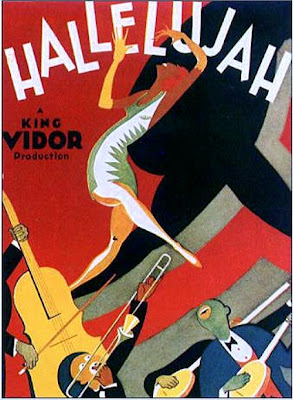
DVD Spotlight - Vidor's 'Hallelujah' Added To Film Registry

The National Film Registry is the registry of films selected by the United States National Film Preservation Board for preservation in the Library of Congress.
The National Film Registry is meant to preserve up to twenty-five "culturally, historically, or aesthetically significant films" each year, to showcase the full range and diversity of American film heritage, and includes films ranging from Hollywood classics to newsreels, silent films, experimental films, films out of copyright protection, significant amateur footage, documentary films, independent films, home movies and even TV movies. As of 2008, there were 500 films preserved in the National Film Registry.
Add Hallelujah to the list of 25 film titles selected this year by the Library of Congress for inclusion in its National Film Registry - King Vidor's 1929 all-black cast musical (quite a gamble at the time - Vidor is said to have deferred his salary for the film's sake).
Centered around themes of religion, sexuality and family, Hallelujah tells the tale of a cotton sharecropper who loses his year’s earnings, his brother, and his freedom, as well as his relationship with a dance-hall girl (played by the then unknown Nina Mae McKinney).
It was one of the first films by a major studio that featured an all-black cast, and its treatment of the lives of African Americans sharply contrasts the racist revisionist portrayals in films like Birth of a Nation.
Hallelujah was Vidor's first sound film, and he was nominated for the "Best Director" Oscar for his efforts.
I couldn't find any clips of the film on YouTube (I'll grab some from my copy and upload shortly), but the film is available for sale at Amazon.com.
It's recommended viewing for any of you who have yet to see it!
via VARIETY


Definitely worth seeing for a glimpse of Nina Mae McKinney, who in another era could've been a big star.
It's a major step up from Mr. Griffith's epic, but it lapses into some cringe-inducing moments of romantic racism (i.e, lots of gratuitous displays of darky dancing and joviality).
"... it lapses into some cringe-inducing moments of romantic racism..."
Indeed, indeed...